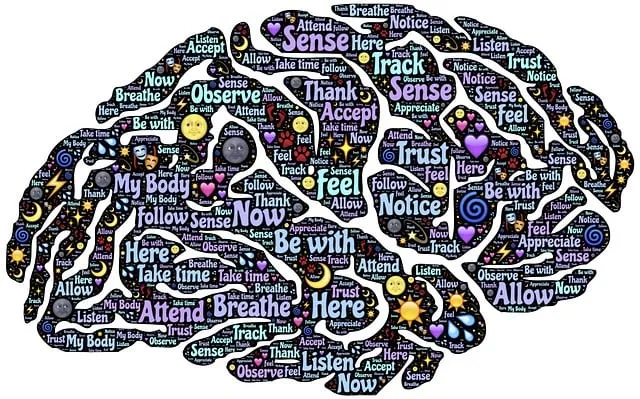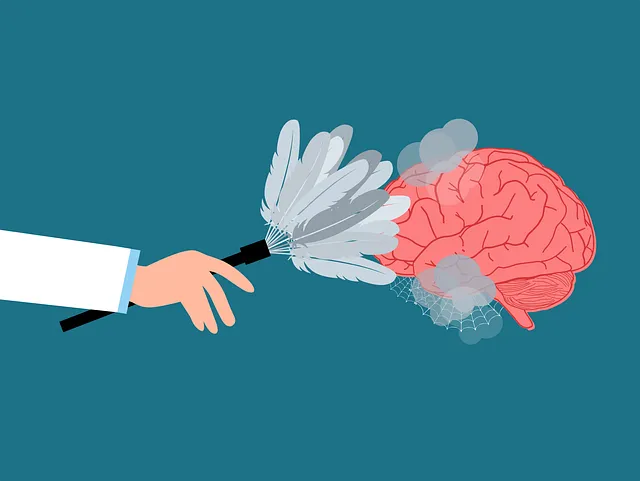Understanding trauma is crucial for providing effective support services that impact mental wellness. Organizations like the Lafayette Kaiser Permanente (LKP) mental health center play a vital role by offering specialized trauma-related services. LKP, known for excellent reviews, employs evidence-based practices, focuses on stigma reduction through outreach, and fosters an environment of healing with compassionate exercises. Trauma-informed care at LKP prioritizes emotional regulation tailored to individual histories, staff training in creating safe spaces, self-care encouragement, and resilience building. Building trust and safety through non-judgmental sharing and active listening facilitates healing. Community engagement, peer support, and accessibility enhance recovery. LKP's comprehensive approach, reflected in reviews, focuses on proactive resilience building and empowering clients to take control of their mental health.
“Trauma, an indelible mark on the human psyche, necessitates specialized support systems. This article delves into the critical role of trauma support services, setting the stage with an understanding of its profound impact. We explore the Lafayette Kaiser Permanente Mental Health Center’s comprehensive approach to trauma-informed care through detailed reviews and assess what makes it a standout facility. Furthermore, strategies for building trust and safety in these settings are discussed, along with the enhancement of recovery through community engagement.”
- Understanding Trauma and Its Impact: Setting the Stage for Support Services
- Lafayette Kaiser Permanente Mental Health Center: A Comprehensive Overview
- Assessing Trauma-Informed Care: What to Look for in a Review
- Building Trust and Safety: Strategies for Effective Trauma Support
- Enhancing Recovery Through Community Engagement and Resources
Understanding Trauma and Its Impact: Setting the Stage for Support Services

Understanding trauma is a pivotal step in establishing effective support services. Trauma, whether acute or chronic, can profoundly impact an individual’s mental wellness and overall well-being. It often manifests as a response to distressing events, causing a range of emotional, physical, and cognitive reactions. These can include anxiety, depression, flashbacks, and even severe stress management challenges. Recognizing these signs is crucial for providing timely assistance. Organizations like the Lafayette Kaiser Permanente mental health center play a vital role in this process by offering specialized services tailored to address trauma-related issues.
The impact of trauma extends beyond the individual, affecting communities as a whole. Implementing community outreach program initiatives can help raise awareness, reduce stigma, and encourage those affected to seek support. By integrating education, resources, and accessible mental health services, such programs foster an environment that promotes mental wellness. This holistic approach ensures that individuals have the tools and knowledge to navigate their trauma journey effectively, ultimately enhancing their ability to heal and thrive.
Lafayette Kaiser Permanente Mental Health Center: A Comprehensive Overview

The Lafayette Kaiser Permanente Mental Health Center stands as a beacon of hope for individuals navigating mental health challenges. This comprehensive facility offers a wide array of services designed to address various aspects of mental wellness, from acute crises to long-term management. Patients benefit from a multidisciplinary team comprising psychiatrists, psychologists, social workers, and counselors who employ evidence-based practices such as cognitive-behavioral therapy (CBT), mindfulness techniques, and compassion cultivation exercises.
One standout feature of the Lafayette Kaiser Permanente Mental Health Center is its focus on reducing the stigma associated with mental illness. Through various outreach programs and educational initiatives, the center fosters a culture of understanding and empathy within the community. Additionally, it emphasizes coping skills development, empowering individuals to manage stress, anxiety, and depression effectively. The center’s warm and supportive environment encourages patients to explore their emotional well-being while engaging in compassionate cultivation practices that promote self-care and resilience.
Assessing Trauma-Informed Care: What to Look for in a Review

When evaluating trauma-informed care at a mental health center like the Lafayette Kaiser Permanente location, several key indicators should be considered based on reviews. Look for centers that prioritize emotional regulation techniques tailored to individuals’ unique trauma histories. This involves staff being trained in creating safe and supportive environments, encouraging self-care practices, and fostering resilience through evidence-based approaches.
In addition to these aspects, a comprehensive risk assessment for mental health professionals is essential. Reviews should highlight centers that implement strategies for burnout prevention, ensuring caregivers can manage their own emotional well-being alongside supporting patients. This holistic approach not only benefits clients but also maintains the long-term sustainability of care provided at these facilities.
Building Trust and Safety: Strategies for Effective Trauma Support

Building trust and safety is a cornerstone of effective trauma support. At the Lafayette Kaiser Permanente mental health center, reviews highlight the importance of creating a non-judgmental space where individuals feel secure to share their experiences. Therapists employ active listening, empathy, and confidentiality to foster an environment that encourages vulnerability. These strategies not only facilitate open dialogue but also accelerate the healing process by addressing underlying fears and anxieties.
Moreover, trauma support services should incorporate techniques for self-esteem improvement and burnout prevention. By teaching individuals coping mechanisms and emotional well-being promotion techniques, they gain tools to navigate life’s challenges more effectively. This proactive approach not only enhances resilience but also empowers people to take control of their mental health, fostering a sense of safety both within and outside supportive settings, reflecting the comprehensive care offered at Lafayette Kaiser Permanente based on mental health center reviews.
Enhancing Recovery Through Community Engagement and Resources

Community engagement plays a pivotal role in enhancing recovery journeys for individuals dealing with trauma. By fostering connections and providing accessible resources, mental health centers like the Lafayette Kaiser Permanente can create an environment that supports and empowers those in need. This approach leverages the power of collective support, where peer-to-peer interactions and community initiatives contribute to breaking down barriers to care.
Integrating emotional intelligence and cultural sensitivity into mental healthcare practice is essential for effective trauma support. Mental health professionals must be adept at understanding and addressing diverse needs, ensuring inclusive and safe spaces for all individuals, regardless of their background or experiences. Additionally, conducting thorough risk assessments helps identify potential hazards and triggers, enabling practitioners to provide tailored interventions and facilitate a smoother recovery process.
Trauma support services play a pivotal role in healing and recovery. By understanding trauma’s profound impact, we can create safe spaces like the Lafayette Kaiser Permanente Mental Health Center, renowned for its comprehensive care. When assessing services, look for trauma-informed practices that foster trust and safety. Community engagement and accessible resources further enhance recovery journeys. As evidenced by successful centers like Lafayette Kaiser Permanente, a holistic approach to trauma support is key to improving mental health outcomes and empowering individuals on their paths to resilience.






